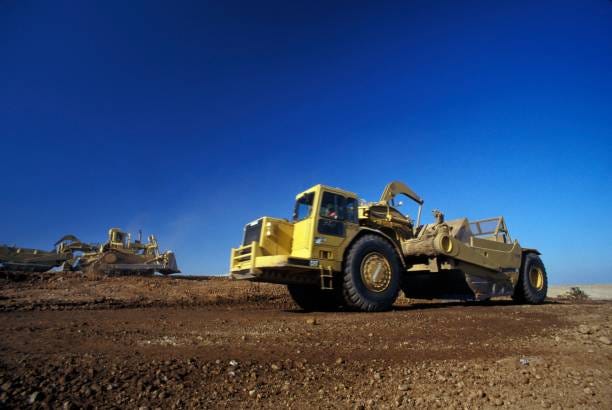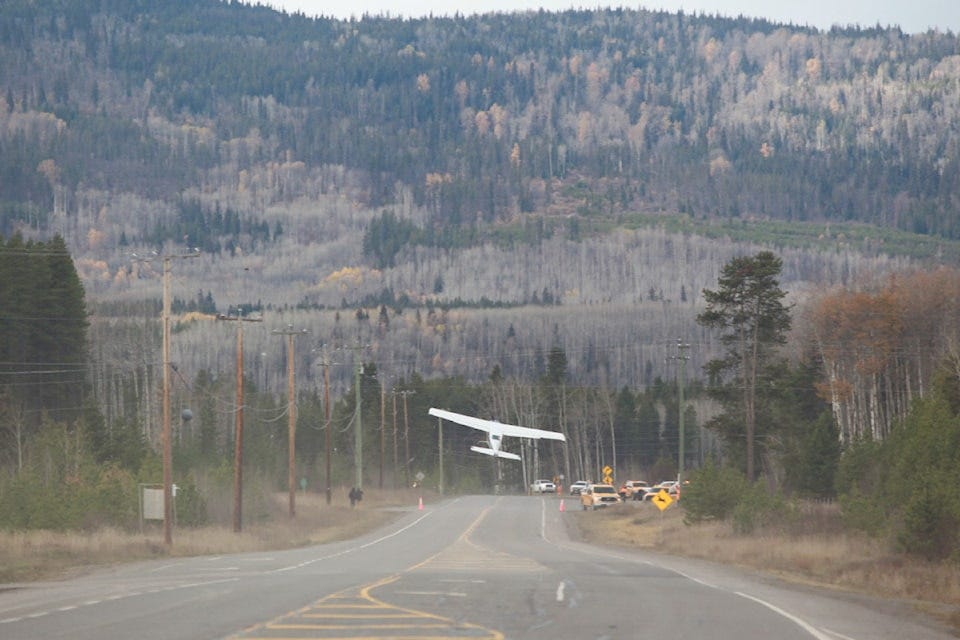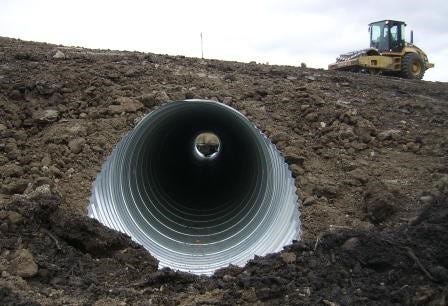The C-11 Saga
Life on the nuttier side...
Throughout history there has existed a phenomenon called “historical chauvinism”. This epistemological view holds that the smart people of today are smarter than the smart people of yesterday because today’s knowledge base is larger. It occurs whenever someone makes a statement like,
“We are living through a period of unprecedented change!” or,
“The rate of change in our culture is dizzying.”
Imagine if you lived in Europe from 1450 until 1520. You would have seen the printing press change the epistemological nature of everything. And then you would have learned that your world is twice as big as you thought. And then the largest and most powerful institution the world has ever seen split into two with one half becoming a different and horrifying parody of the other as seen by both sides from across the theological chasm. In 1520, nothing was the same as it had been in 1450.
And today we are excited by powerful computers in small phones that cause anxiety and end sex and so-called artificial intelligence that lies to us? That is junior varsity change.
This is all a set up for me to push back at the notion that we Boomers have lived the life of Jack and are leaving the world in worse condition than we found it. That notion is also cultural chauvinism. It is not like the Boomers lived in a bed of clover.
The 1970s were a time of rampant inflation, bad governance and economic insecurity. As a direct result of the problems of the 1970s, many of my friends said goodbye to the down payments on their houses before giving the house keys to their bankers. At least two close relatives lost successful businesses to government inspired bankruptcy. We went through a period of hiring cab drivers with advanced engineering degrees.
In the province of British Columbia, so many construction companies were going bankrupt that Caterpillar financed a young entrepreneur to establish a construction company to buy up the used equipment that was hurting their new equipment sales. To complete this plan, they needed a ruling from the government. And they got it. Bill C-11.
And that is how C-11 Industries was created. Its 30-year-old owner was the son of a successful highway contractor, and he was going to set the world on fire. We will call him Dave. I met Dave because he was renting some of his equipment to a mine at which I was working, and he offered me a job as the General Manager of the Mining Division of his company with a near doubling of my salary. Except his company did not yet have a mining division.
When I discussed this offer with my father, he said,
“Well, you are young and can recover.”
I found his view to be surprisingly optimistic, so I took the plunge knowing that things had a high potential for disaster. But Dave was successful, dynamic, funny and had his own helicopter. The worst case was I would learn a lot of stuff from Dave. And I did. Just not the stuff I thought I would learn.
I quit my job with the mining company with whom I had become increasingly estranged – mostly for reasons of my own making – and, with my very pregnant wife, pulled a 22-foot holiday trailer to the job site in a new provincial park in Alberta. C-11 was building 20 kilometers of highway in the park and I was to be the superintendent despite knowing nothing about highway construction. But that was the point. I was there to learn. That is what Dave had said.
That, of course, was not what Dave had meant. What he meant was that I would straighten out the complete mess of a project that was financially strangling him because he had bullied the government into paying him 80% of his contract price after only completing 40% of the project. My job was to finish 60% of the project with 20% of the money. It took several weeks for me to understand the new relationship I had with Dave and when I worked it out, I understood why he only called to yell at me.
In the meantime, we lived in the camp compound in our little trailer with our sheltie dog for companionship. There was a trailer camp for the thirty or so employees, but we generally ate meals in our tiny home. Apart from being 90 minutes from her doctor, it was idyllic for my wife. At least that is how I justified it to her.
“You get to take long walks in the forest with the dog for protection. You get to enjoy these crisp, autumn days far from the maddening crowd!”
The equipment available to complete the project was both numerous and appropriate for the work. We had large earth scrapers, graders, dozers, packers, light plants and generators. But the equipment was also old and had been repossessed from bankruptcy so was not in good condition. Dave’s maintenance superintendent was a quality guy who worked miracles to keep the fleet operating. His frustration was that the company credit had been cut off from so many suppliers that he had to go to Saskatoon to buy necessary repair parts.
And it wasn’t just the equipment that was a bit frayed. The company was developing a reputation and finding skilled equipment operators was challenging. At the end we took to hanging around bars and prisons to find the people who would agree to work with us.
On one memorable occasion, I fired an operator for coming to work inebriated and that night, his brother, who had established himself as the arm-wrestling champion of Alberta… at a maximum-security prison… took issue with my judgement. I remember being pinned to the wall between two urinals listening to the details of how my limbs were to be removed. When he paused long enough to breathe, I jumped in with a rather cogent argument that there was little to be gained by murdering me with my pregnant wife mere meters away and did he really want to live his life in prison on the account of an idiot like me? Couldn’t we at least discuss the issue from my perspective, pretty please?
I think my sucking up worked because we did discuss things and he did agree that his brother’s drunkenness might have resulted in an accident leading to my assailant’s death. At this point he recognized my dilemma and turned on his brother.
In the course of our return to fellowship I learned the details of his stint in prison. It seems that he and his friends had gotten into a fight with people who occupied an adjacent campsite and, when his neighbours went to sleep, he lit their tent on fire. To him it was an obvious response and, given my recent, near-death experience with him, I heartily agreed.
It was only a week or two after this that I was elbowed out of a lovely sleep at 3 o’clock in the morning by my wife. She was concerned that “it was time”, and it took a few more elbows for the meaning of that phrase to register with me. Having just survived being taken out of the world I did not want the responsibility of bringing my first born into it and so we bundled the dog into our car and raced the 90 minutes to the hospital. Every few minutes I was informed that unless we grew wings, it might well be beyond time. At the hospital, I got my wife to the maternity ward and then returned to secure the dog and properly park the car. I was concerned that I might miss the event and was surprised to find the admitting nurse suggesting that,
“First pregnancies are often difficult to predict and why don’t you go home and see how things are in the morning?”
When I explained that “home” was 90 minutes away she suggested some local motels. But she did give my wife an examination only to discover that dilation was pretty much finished and all talk of home and motels ended. My wife was given a gown and the next I saw of her was when she peeked her head out of the door of the bathroom and told me that something awful had happened. The “something awful” was the breaking of the water and when I informed the nurse, things went from,
“Now, now, calm down…” to
“Someone get a doctor in here immediately!”
and then to screams of panic when she finally pulled my wife’s file and saw “BREECH!” written in red pencil crayon. I was told to find a chair, sit in it and shut up while an alarm went out for the resident obstetrician to be awakened and start earning his keep. I was eventually brought in to witness the birth of my first born and I struggled to remember what I had learned at the birth classes. It had something to do with “puppy breathing” but I couldn’t remember the details and… was it normal for my wife’s face to be so contorted and her grip to be strong enough to break the bones in my hand?
I think the whole event from first elbow to squalling kid was about five hours which, I am told, is some sort of record for a breech delivery. When the doctor showed my new child to me, I exclaimed in teary delight that I had fathered a lovely little boy. The doctor paused and then laughed and said,
“Almost.”
The bruising and swelling from the breech delivery had confused the issue for me. Could have happened to anyone.
Whatever the sex, I fell in love with my little charge, and her birth introduced a paradigm shift into my world that coloured everything especially as it touched on my employment. My wife and daughter returned to our house in the mining community, and I commuted to the jobsite every Sunday afternoon. The weekly separation was the first of many in our lives but that didn’t make it any easier.
Things at the job became increasingly bizarre as financial ruin loomed large over the operation. I was committed to Dave for as long as my paycheck didn’t bounce. Speaking of which, at one point I got a phone call from him telling me to close off a mile of the highway between a specified time.
“But why Dave? Is this even legal?”
“Just do as I said!”
We blocked traffic at the appointed time and about ten minutes later Dave landed his airplane on the highway and delivered our paychecks. Traffic resumed with lots of scowly faces from the upset motorists, but I don’t think anyone registered an official complaint. It is impressive the things you can get away with if you just give it a go!
On another occasion Dave drove to the site with the paychecks, but he neglected to tell me that he was coming or that he was using our bypass road. Our bypass road was a goat trail along the mountainside used to move equipment from one part of the construction site to another. It was not unusual for a large scraper to come thundering down the road causing panic to anyone driving in the opposite direction. It sure caused panic in Dave as he was caught on a particularly steep slope when confronted with the need to hit reverse – fast. I was dressed down, of course, but this was getting to be old hat, and I was more interested in the explanation of how he overcame a broken fuel pump on the trip into the park.
The government had installed a very sturdy gate to prevent people accessing the park from a back road but that back road saved us a couple of hours of commute time, so we immediately broke the chains on the gate and then doctored them to look like they hadn’t been broken. All this to say that Dave’s route was not well travelled and a breakdown of his truck meant a very long walk to get help. Instead, he filled his window washer reservoir with gasoline and rerouted the tube from the window sprayer to the carburetor. When the engine started to fail, he squirted some gas into the carburetor and arrived safely. Well, safe if one ignores the encounter with the scraper. I thought it was remarkably clever and it was quintessential Dave.
By the time my daughter was born, we had finished about 60% of the road grade and were almost ready for paving. Unfortunately, none of the culverts were placed to redirect the water that came off the road and two or three kilometers of road through a wet swamp were yet to be built. We decided to focus on the culverts because they would yield quick money from the government, and we had neither the equipment nor the money to rent the equipment for the swamp construction. I became an expert in building culverts faster than government inspectors could check our work.
As with any large capital government job, building roads successfully is as much about fooling the government inspectors as it is doing the work. At least that is the rationalization I used to justify the stuff we did. Remember the ethical nature of our workforce and picture our “all hands” brainstorming meetings to figure out how we were going to get the job moving. Many of my colleagues may not have passed muster with the justice system but they sure impressed me with their imaginations.
By way of example, we had cut down a lot of trees to establish the right-of-way for the road allowance. Unfortunately, we didn’t have the money to buy the diesel required to burn the big piles of trees and other slash, so we worked many beautiful, moonlit nights to dig big holes in the road allowance and bury it. We had to stagger the disappearance of the piles, or the inspectors might twig to what we were doing. Piles of trees take weeks to burn, they don’t just disappear, so we had to be careful and selective. My job was to feign ignorance if questioned by the inspector.
As winter took hold, our ability to compact the soil used to cover the culverts was impaired and that generated some good ideas as well. Most of the ideas were short cuts for connecting the pipes so that the burial was accomplished out of prying eyes. The pipe lengths were properly connected, and the job was well done but we got very good at working quickly and efficiently. If a few frozen lumps found their way into the backfill well, it couldn’t be helped.
We had one truly epic culvert construction project that involved building a ten-foot diameter multi-plate culvert in the bottom of a deep ravine and we more than met the challenge. The south side of the ravine slope was dried grass and represented no challenge. The other side had been wooded, and we needed to burn the trees that had been removed. The operation commenced in late October, and the day was crisp with brilliant sunshine. I assigned the task to my best crew – a couple of cut-ups from Newfoundland who were indifferent workers but a great deal of fun to be around.
“No problem, boss! This job is in good hands! Tee hee…”
I explained to them the risk of an out-of-control fire if the flames spread to the dried grass on the south slope. With stern remonstrations and their guarantee of a job well done, I left to see what was happening in another part of the project. My return trip of about 30 minutes took me over our detour route from which I could look down on the ravine and watch the progress of the wood burning process. Given the crisp dryness of the morning, the haze of humidity seemed strange and when I first saw the plume of smoke billowing out and the flames burning the trees at the top of the south flank of the ravine, I stopped to contemplate the end of my career in Canada. We were burning the virgin forest of Canada’s newest park named in honour of the family of Alberta’s premier. As I looked north from the flames, I could see no reason for the fire not to continue up the Rocky Mountains and into the Yukon.
Reluctantly I raced down to see the damage and ensure that the Newfies were safe. Once that was done I would phone for the firefighters. As I arrived, my boys were stamping out the last of the flames which had penetrated two or three rows of trees into the forest. It was clear that they had been working on adrenalin, and I will never know how the two of them put out the fire. When I arrived, I was greeted by big grins in blackened faces with,
“See? Told you it would all go well!”
And then big guffaws. My life was not over after all.
A couple of weeks after this near miss, I welcomed with great relief, a seasoned road construction manager to the operation. We will call him King and King was an ebullient Australian with an impressive resume. He would be responsible from now on and would I mind staying on to help him out? King was a great guy and it was easy to say yes. King also liked to hunt on his way into the job site and regaled me with tales of the elk who had eluded him that morning.
On one occasion he pulled up alongside the culvert that we were installing, and I introduced him to the government inspector who, ignoring the snowstorm in which we were working, had come out to see what awful things we were doing that day. As King rummaged in the back seat of his truck for the paychecks, I heard a loud “pop” and asked if he had remembered to unload his rifle and engage the safety.
“Of course! I always put on the safety.”
“Then when did you get this little hole in the truck door?”
At this, King went white. We followed the likely trajectory of the bullet, and, apart from almost taking out my kidney, it missed the government inspector’s head by inches. Due to the wind and blowing snow he was blissfully unaware of how close he had come to being a statistic before his time.
That weekend I drove home a day early to find out from Dave what the plan was for developing the “mining division”. I am pretty sure I knew the answer, but it is good to ask. He responded by yelling at me that he had had enough and I was fired. I yelled back,
You can’t fire me because I quit!” And he yelled back at me,
“You can’t quit cause I just fired you!” And I yelled back,
“Yeah? You can’t have fired me because I quit!”
Even as I left his office I laughed at how stupid that particular conversation was and I was flooded with relief given that unemployment left me in the enviable position of being able to spend time with my little girl. My total time with Dave, from start to finish, was just over three months. And I wouldn’t have missed a second if it.
By the way… Thirty years after my construction career ended I drove along the road we had built and there were only slight swales and dips where the trees had been buried. No harm, no foul.





Thanks for the feedback... mission accomplished! I had some good chuckles remembering the events as well.
Time to actually write a book about all your adventures! Such good reads.